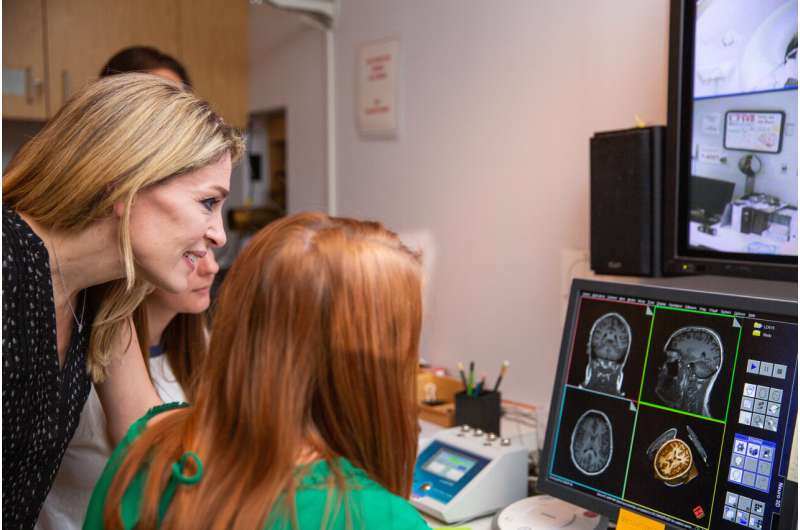This article has been reviewed according to Science X's editorial process and policies. Editors have highlighted the following attributes while ensuring the content's credibility:
fact-checked
peer-reviewed publication
trusted source
proofread
Psychologists map the psyche of extreme altruists

Although many people admire the actions of people who engage in acts of extraordinary altruism, like altruistic organ donors, bone marrow donors, and heroes who rescue people from fires or accidents, they are also often mystified at what motivates these altruists to act.
Published in Nature Communications, a new paper from a team of Georgetown researchers aims to answer this question by mapping out the psychological profiles of a range of extreme real-world altruists, like heroic rescuers, humanitarian aid workers, and people who donate organs or bone marrow to strangers at no benefit to themselves.
"After evaluating more than 300 extreme altruists, and comparing them to a baseline cohort of typical adults, we found that exceedingly generous people are best distinguished from typical adults by their unselfish traits and preferences," said Abigail Marsh, the paper's senior author.
"But they are not different in a lot of other ways. They are not more agreeable or conscientious, they are not insensitive to risk in general, and they don't even report higher levels of empathy. Instead, their choices reflect the fact that they appear to truly value the well-being of strangers and the welfare of their communities."
The team, which included researchers from the Massachusetts Institute of Technology and Linfield University, applied a battery of personality tests, psychological screenings and economic tasks to the group of extreme altruists selected for the study. The cohort of altruists included donors who have given kidneys, livers, bone marrow, and hematopoietic stem cells to strangers alongside humanitarian aid workers and volunteer rescuers.
The battery of tests revealed that extreme altruists have consistently high levels of Honesty-Humility, a personality trait defined by the HEXACO model of personality structure. This personality trait is marked by "the tendency to be fair and genuine in dealing with others, in the sense of cooperation with others even when one might exploit others without suffering retaliation," according to Kibeom Lee and Michael Ashton, who developed the HEXACO model. People who have high levels of Honesty-Humility have a low sense of self-importance and are unwilling to use, exploit, or harm others to benefit themselves.
"In some ways, it seems intuitive that the trait that really distinguishes extraordinary altruists from other people is unselfishness and valuing others' welfare," explained Marsh. "But we actually know it's not intuitive, because we polled a second group of adults and asked them to predict what traits would distinguish altruists. Interestingly, they predicted that extreme altruists would be better in basically every way—more agreeable, more conscientious, more open, and so on. They sort of think that altruists are perfect people, even superhuman. I think that's why you so often hear altruists referred to using supernatural terms like 'saints' and 'guardian angels.' But they're not. It's so important to know that really altruistic people have quirks and flaws just like anyone else. They are just genuinely less selfish."
Marsh's lab at Georgetown, the Laboratory on Social & Affective Neuroscience, studies both ends of what she terms the "caring continuum," which includes both those with extraordinary levels of empathy and those with deficits of compassion, such as people with psychopathy.
Two of the paper's co-authors, Shawn Rhoads and Marsh, recently contributed a chapter to the UN's World Happiness Report, which analyzed the relationship between altruism, happiness and well-being.
"These results call attention to some common assumptions about human nature as selfish," said Shawn Rhoads, the paper's first author. "While self-focused motives for prosocial behaviors certainly exist—such as helping others in order to receive something in return or to improve one's reputation—these data suggest that acts of real-world self-sacrifice, even in extreme cases, can reflect unselfish motivations and preferences as well."
More information: Shawn A. Rhoads et al, Unselfish traits and social decision-making patterns characterize six populations of real-world extraordinary altruists, Nature Communications (2023). DOI: 10.1038/s41467-023-37283-5




















